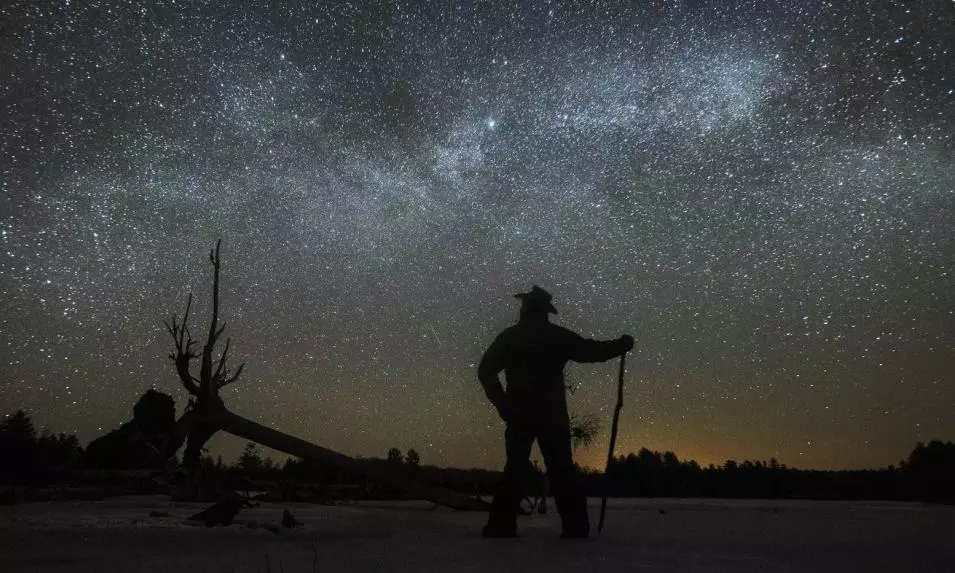
Stars in the night sky disappear due to increasing light pollution: experts
text_fieldsData collected from around the world has revealed that stars in the night sky are disappearing faster than previously thought due to an increase in light pollution. In 20 years, the number of stars visible to the naked eye has been reduced by over 50%.
Christopher Kyba, a physicist at the GFZ German Research Centre for Geosciences, called the findings shocking and worse than experts worried. In an attempt to demonstrate, he said if a child is born today in a light-polluted location where 250 stars are visible at the moment, they will only be able to see 100 stars by the age of 18.
Light pollution is caused by artificial light and the sky brightens by 9.6% every year due to this problem. It was earlier thought that the brightness of the sky due to light pollution was increasing by 2%. Skyglow, the background shimmer of photons released by streetlights, billboards, and storefront signs among other man-made structures, is the major type of light pollution.
The study published in the journal Science says that the issue of light pollution obstructing stars to astronomers and the general public is expanding far more quickly than experts realised. This also has negative effects on the environment and biological systems of all living beings.























